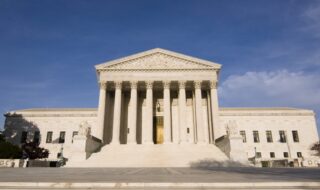Topics:
May 15, 2022
2022 End-of-Session Report on the Colorado General Assembly
State:
Get to know NFIB
NFIB is a member-driven organization advocating on behalf of small and independent businesses nationwide.
Related Articles

July 10, 2025
Small Businesses Get Key Wins During 2024-25 U.S. Supreme Court…
The NFIB Small Business Legal Center secured three much-needed wins on beha…
Read More


July 9, 2025
Small Businesses Succeed in Challenge to FTC’s Automatic Rene…
NFIB wins lawsuit challenging the FTC’s Negative Option Rule, which targe…
Read More


July 8, 2025
NEW SURVEY: Small Business Optimism Remains Steady in June
Taxes remain small business owners’ single most important problem.
Read More


July 2, 2025
NFIB Jobs Report: Job Openings Remain a Challenge for Main Stre…
Labor quality remains a top problem for small businesses.
Read More







